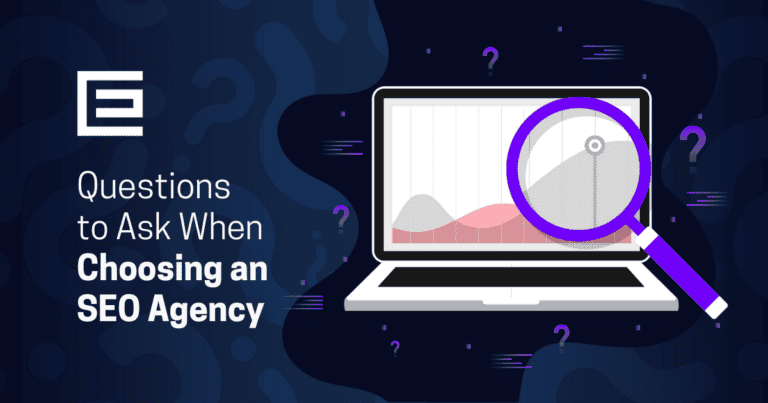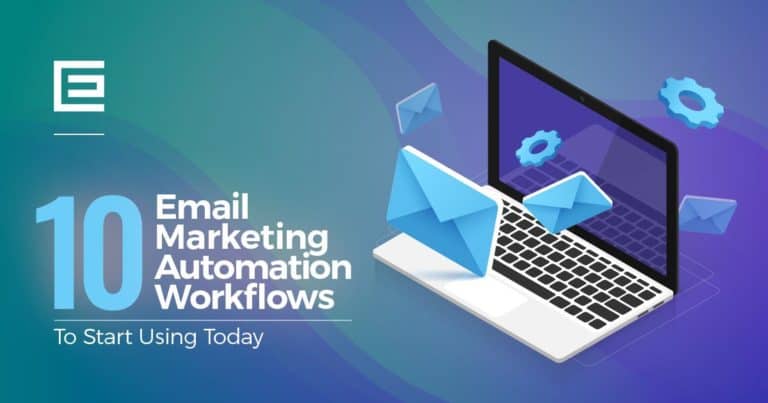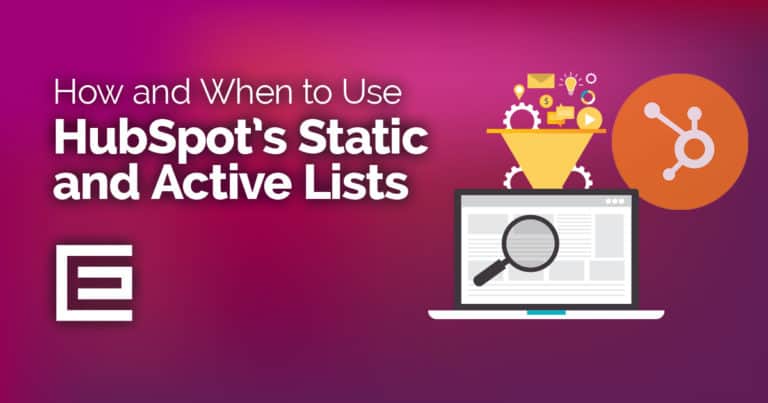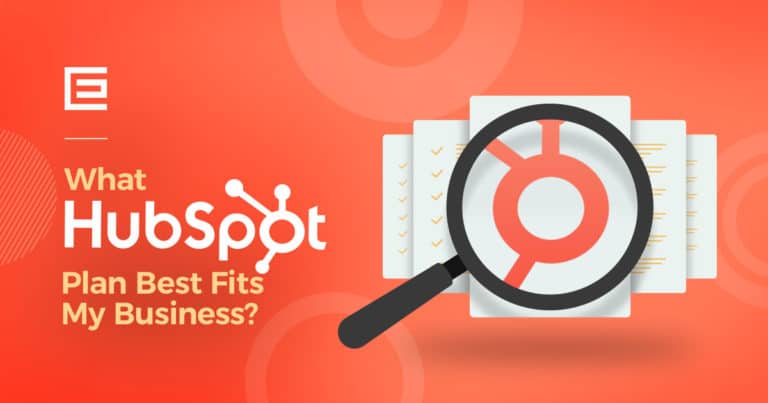At its core, HubSpot is a comprehensive Customer Relationship Management (CRM) platform, ingeniously designed to streamline and enhance the interactions between a business and its customers. This platform is not just a tool; it’s a multifaceted ecosystem that integrates various aspects of business operations, from marketing and sales to customer service and content management.
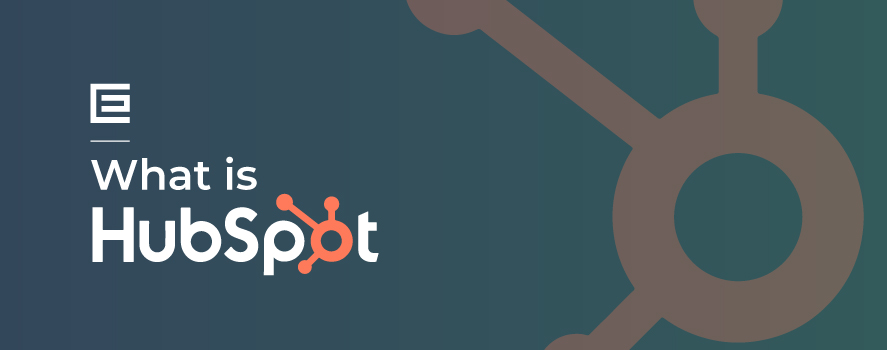
What Is HubSpot?
HubSpot is an all-in-one marketing software that believes that marketing should “Attract, Engage, and Delight.” How do you do that? By attracting your target audience to your website and creating a seamless process to convert them into customers. Then you can focus on maintaining that relationship through continued outreach that turns them into loyal followers.
The HubSpot platform works with your existing website. This makes it easier for you and your team to create, implement, and manage inbound marketing strategies to:
- Attract visitors to your website through SEO, blogging, social media posts, and targeted ad campaigns
- Capture and convert leads through landing pages, contact forms, and engaging calls-to-action
- Improve existing customer relations with live chat, email marketing, A/B testing, and CRM tools that improve communication
- Track your ad spend and see which marketing assets are bringing in the best results through thorough analytics
In addition, HubSpot allows you to automate your marketing activities so you can schedule posts in advance, set up triggers that send emails, and establish a system that guides your leads through the sales funnel.
You can learn more about HubSpot in this video:
History and Evolution of HubSpot
HubSpot’s journey began in 2006, born out of the vision of its founders, Brian Halligan and Dharmesh Shah. They identified a shift in consumer behavior and saw the need for a new marketing approach that would be more effective in the digital age. This insight led to the creation of HubSpot, initially focusing on inbound marketing to help businesses attract, engage, and delight customers organically and non-intrusively.
The company hit several key milestones that marked its growth and expansion. In 2007, HubSpot introduced its first software product, aimed at small and medium-sized businesses, to assist in inbound marketing efforts. This was followed by a series of innovations, including the launch of its own Content Management System (CMS) and the introduction of social media tools, reflecting the evolving digital landscape.
A pivotal moment in HubSpot’s history was its initial public offering (IPO) in 2014, which was a testament to its success and growing influence in the marketing world. This event not only provided the financial impetus for further expansion but also solidified HubSpot’s position as a leader in the marketing software industry.
The evolution of HubSpot from a marketing platform to a comprehensive CRM solution was a strategic and gradual process. Recognizing the interconnected nature of sales, marketing, and customer service, HubSpot expanded its offerings to include a Sales Hub in 2014 and a Service Hub in 2018. These additions transformed HubSpot into a holistic CRM platform, providing businesses with a unified solution to manage all aspects of customer relationships and interactions.
This evolution was driven by the understanding that an effective CRM system needs to encompass more than just customer data management. It should facilitate a seamless flow of information across different departments, enabling businesses to provide a cohesive and personalized customer experience. Today, HubSpot stands as a fully integrated CRM platform, offering a suite of tools that cover everything from lead generation and customer service to data analytics and reporting, catering to the diverse needs of modern businesses.
Core Features of HubSpot
At its heart, HubSpot’s CRM capabilities are engineered to streamline customer relationship management, offering a centralized platform where every interaction with a customer is tracked and analyzed. This system provides a 360-degree view of the customer journey, enabling businesses to tailor their strategies and communications effectively.
The platform is segmented into three main ‘Hubs’ – Marketing, Sales, and Service – each designed to address specific aspects of the business-customer relationship. The Marketing Hub focuses on attracting and engaging customers through content creation, social media marketing, SEO, and email campaigns. It’s a powerhouse for generating leads and nurturing them through personalized, automated workflows.
The HubSpot Marketing Hub stands as a pivotal component of HubSpot’s comprehensive suite of tools, specifically designed to empower businesses in their marketing efforts. This hub is tailored to streamline and enhance various aspects of digital marketing, from lead generation to customer conversion and retention.
One of the key features of the Marketing Hub is its advanced content creation tools. These tools enable businesses to easily create and manage blog posts, web pages, and landing pages. The integration with the HubSpot CMS ensures that content is not only engaging but also optimized for search engines, enhancing online visibility and reach.
The Sales Hub is tailored for sales professionals, offering tools like email tracking, meeting scheduling, and pipeline management. This hub simplifies the sales process, providing valuable insights into potential leads and enabling sales teams to close deals more efficiently. The integration between the marketing and sales hubs ensures a seamless transition of leads from marketing to sales, enhancing the overall efficiency of the business process.
The Service Hub completes the trio, focusing on customer service and support. This hub provides tools for ticketing, customer feedback, knowledge base management, and more, ensuring that businesses can offer exceptional post-sale service. By integrating customer service with marketing and sales, HubSpot ensures that customer satisfaction is at the core of the business strategy.
In addition to these hubs, HubSpot’s Content Management System (CMS) stands out as a key feature. The CMS is not just about creating and managing content; it’s about delivering personalized web experiences. Integrated with the CRM, the CMS allows for the creation of dynamic, user-centric content, ensuring that visitors receive relevant information tailored to their interactions and preferences.
Lastly, HubSpot’s analytics and reporting tools are integral to its functionality. These tools provide comprehensive insights into marketing, sales, and service activities, enabling businesses to make data-driven decisions. From website traffic analysis to sales performance metrics, HubSpot’s analytics tools help businesses understand their ROI and continuously refine their strategies for better results.
Together, these core features make HubSpot not just a tool, but a strategic partner for businesses aiming to grow and succeed in a customer-centric world.
Benefits of Using HubSpot
The adoption of HubSpot within a business brings a multitude of benefits, particularly in streamlining sales and marketing efforts, enhancing customer relationship management, and leveraging a rich ecosystem of integrations.
Streamlining Sales and Marketing Efforts
One of the most significant advantages of HubSpot is its ability to seamlessly align sales and marketing activities. The platform serves as a single source of truth, where both sales and marketing teams can access shared data, track the progress of leads through the sales funnel, and collaborate effectively. This alignment is crucial in creating a consistent and cohesive customer journey, from the first point of contact to the final sale. HubSpot’s automation tools further streamline these processes, allowing for automated email campaigns, lead scoring, and nurturing workflows that save time and reduce the potential for human error. This efficiency not only accelerates the sales cycle but also ensures that marketing efforts are more targeted and effective.
Enhancing Customer Relationship Management
At its core, HubSpot is designed to enhance customer relationship management. By providing a detailed view of each customer’s interactions, preferences, and history, businesses can tailor their approach to meet individual needs and preferences. This personalized attention fosters stronger relationships and enhances customer loyalty. HubSpot’s CRM capabilities also help in identifying potential issues and opportunities, enabling businesses to proactively address customer needs and expectations. The platform’s ability to track and analyze customer feedback and interactions across various channels ensures that businesses are always in tune with their customer base, leading to improved customer satisfaction and retention.
Integrations and Ecosystem
HubSpot’s robust ecosystem and its capacity for integrations stand out as a key benefit. The platform integrates seamlessly with a wide array of tools and applications, from email services and social media platforms to advanced analytics tools and ERP systems. This flexibility allows businesses to connect HubSpot with their existing technology stack, creating a more unified and efficient operational framework. Additionally, HubSpot’s App Marketplace offers a plethora of plugins and extensions, enabling businesses to extend the platform’s capabilities and tailor it to their specific needs. This level of integration and customization ensures that HubSpot can adapt to various business models and processes, making it a versatile tool for businesses of all sizes and industries.
In short, HubSpot offers a comprehensive solution that not only streamlines sales and marketing efforts but also enhances customer relationship management and thrives on a rich ecosystem of integrations. These benefits collectively contribute to a more efficient, customer-centric business model, driving growth and success in the competitive digital landscape.
HubSpot for Different Business Sizes
HubSpot’s versatility and scalability make it an ideal solution for businesses of all sizes, from small startups to large enterprises. Its adaptability lies in its ability to cater to the unique needs of each business, regardless of its size or industry.
Suitability for Small and Medium Businesses
For small and medium-sized businesses (SMBs), HubSpot offers a cost-effective and user-friendly platform to manage their sales, marketing, and customer service needs. SMBs often face the challenge of limited resources and manpower, making efficiency and automation key to their growth. HubSpot addresses these challenges by providing an array of tools that automate routine tasks, streamline customer interactions, and simplify marketing efforts. The platform’s intuitive design ensures that smaller teams can easily adopt and utilize its features without the need for extensive technical expertise. Additionally, HubSpot’s free CRM is a significant draw for SMBs, offering essential functionalities without the upfront investment, which is crucial for businesses with tighter budgets.
Scalability for Large Enterprises
For larger enterprises, HubSpot’s scalability is a standout feature. As businesses grow, their processes and systems become more complex. HubSpot grows with them, offering advanced features and capabilities that can handle increased volumes of data, more complex customer interactions, and a broader scope of marketing and sales activities. The platform’s ability to integrate with other enterprise-level tools and systems means that it can fit seamlessly into the larger technological ecosystem of a big organization. Furthermore, HubSpot’s tiered pricing model allows large businesses to choose a plan that matches their scale and complexity, ensuring they only pay for the features they need.
Customization and Flexibility
Customization and flexibility are at the heart of HubSpot’s appeal to businesses of all sizes. The platform offers a high degree of customization, allowing businesses to tailor its tools and features to their specific processes and workflows. Whether it’s customizing marketing campaigns, sales pipelines, or service processes, HubSpot provides the flexibility to modify its platform to fit the unique requirements of each business. This adaptability is further enhanced by HubSpot’s extensive ecosystem of integrations, enabling businesses to connect and synchronize with a wide range of other tools and systems they might be using.
HubSpot’s ability to cater to the diverse needs of different business sizes, its scalability for growing enterprises, and its customization and flexibility make it a versatile and valuable tool for any business looking to optimize its sales, marketing, and customer service efforts. Whether a small startup or a large multinational, HubSpot offers solutions that can be tailored to meet the specific challenges and objectives of each organization.
Implementing HubSpot in Business
The implementation of HubSpot within a business environment is a strategic process that involves careful planning, integration, and utilization of available resources and training. This process ensures that businesses can fully leverage HubSpot’s capabilities to enhance their sales, marketing, and customer service operations.
Steps for Integration and Setup
The first step in implementing HubSpot is to define clear objectives and goals that the business aims to achieve with the platform. This clarity helps in customizing the setup to align with specific business needs. Following this, the integration process begins, which involves setting up the HubSpot account and importing existing customer data into the system. This data migration is a critical step, as it ensures that all customer interactions and history are centralized within the HubSpot CRM.
Next, businesses need to integrate HubSpot with their existing tools and systems, such as email platforms, social media accounts, and other CRM or ERP systems. This integration ensures a seamless flow of data across different business functions and enhances overall operational efficiency. Setting up marketing, sales, and service hubs is also part of this process, involving the creation of email templates, setting up marketing campaigns, defining sales pipelines, and establishing service ticketing systems.
After the technical setup, it’s essential to configure the analytics and reporting tools. These tools are vital for tracking performance and measuring the success of marketing and sales efforts. Customizing dashboards and reports to reflect key performance indicators helps businesses monitor their progress and make data-driven decisions.
Training and Resources Available
To maximize the benefits of HubSpot, businesses must invest in training their teams. HubSpot offers a wealth of resources and training materials to facilitate this. The HubSpot Academy is a notable resource, offering free online training courses and certifications on various aspects of the platform, including inbound marketing, sales, and customer service best practices.
In addition to the Academy, HubSpot provides extensive documentation, user guides, and community forums where users can seek advice and share best practices. For more personalized support, businesses can also access professional training and consulting services offered by HubSpot or its network of certified partners. These services provide tailored guidance and strategies to optimize the use of HubSpot in line with the specific needs of the business.
Implementing HubSpot in a business is a comprehensive process that goes beyond mere technical setup. It involves strategic planning, integration with existing systems, and a commitment to ongoing training and learning. By following these steps and utilizing the available resources, businesses can ensure a smooth transition to HubSpot and fully harness its potential to drive growth and success.
Why Work with a HubSpot Certified Partner?
HubSpot makes it easy to automate your marketing strategy, put the plan into action, and analyze the results. However, it doesn’t do the work for you.
That’s where a HubSpot Certified Partner comes in! HubSpot Certified Partners are digital marketers who specialize in the inbound methodology. They develop, implement, and manage strategies to get results. To earn this designation, Certified Partners have to meet strict requirements and show proficiency in both inbound marketing and using HubSpot tools in lead generation.
Working with a HubSpot Certified Partner to help you implement your blogs, SEO, email, and social media allows you to focus on running your business. Your marketing team will act as an extension of your brand to increase your sales and improve customer loyalty.
Comparing HubSpot with Other CRMs
In the realm of Customer Relationship Management (CRM) systems, HubSpot stands out for its unique approach and features, distinguishing it from other competitors in the market. Understanding these differences and the unique selling points of HubSpot is crucial for businesses considering which CRM tool to adopt.
Key Differences from Competitors
One of the primary differences between HubSpot and other CRM platforms is its inherent focus on inbound marketing. While most CRM systems concentrate on managing customer relationships and sales processes, HubSpot extends its functionality to attract and engage customers through content marketing, SEO, social media, and more. This integration of marketing and CRM functions provides a more holistic approach to customer acquisition and retention.
Another key difference is HubSpot’s user-friendly interface. Designed with simplicity and ease of use in mind, HubSpot caters to users who may not be deeply technical. This contrasts with some other CRM systems that often have a steeper learning curve and may require more extensive training or technical know-how.
Additionally, HubSpot offers a free version of its CRM, which is not commonly found in other major CRM platforms. This free tier provides access to basic CRM functionalities, making it an attractive option for small businesses or startups that are budget-conscious but still want to leverage CRM capabilities.
Unique Selling Points of HubSpot
HubSpot’s unique selling points revolve around its comprehensive suite of tools and its commitment to an inbound methodology. The platform combines CRM, marketing, sales, and service tools in one integrated system, allowing for seamless collaboration and data sharing across different departments. This integration ensures that all teams have a unified view of the customer, leading to more coordinated and effective customer engagement strategies.
The platform’s emphasis on content creation and management is another unique aspect. HubSpot’s CMS and marketing tools are designed to work seamlessly together, enabling businesses to create personalized and engaging content that resonates with their target audience. This focus on content and inbound marketing is a cornerstone of HubSpot’s strategy, setting it apart from other CRMs that may not offer such robust marketing features.
Furthermore, HubSpot’s extensive ecosystem of integrations and apps allows businesses to customize and extend the platform’s capabilities. Whether integrating with social media platforms, email services, or other business tools, HubSpot’s flexibility ensures that it can adapt to a wide range of business needs and workflows.
Future Outlook
HubSpot stands as a comprehensive solution that integrates various aspects of business operations, from marketing and sales to customer service and content management. Its user-friendly interface, combined with powerful automation and analytics tools, makes it an invaluable asset for businesses aiming to enhance their customer engagement and streamline their internal processes.
Looking towards the future, the CRM industry is poised for continued evolution, with trends like artificial intelligence (AI), machine learning, and increased personalization shaping the way businesses interact with their customers. In this evolving landscape, HubSpot’s role is likely to become even more significant. The platform’s commitment to innovation and its ability to integrate new technologies suggest that it will continue to be at the forefront of CRM and marketing solutions.
One can anticipate that HubSpot will further enhance its AI capabilities, providing businesses with even more sophisticated tools for data analysis, customer insights, and personalized marketing strategies. The integration of AI can transform how businesses predict customer needs, automate responses, and create more engaging and relevant customer experiences.
Moreover, as the digital world becomes increasingly interconnected, HubSpot’s ability to integrate with a wide range of platforms and tools will be crucial. This interoperability will enable businesses to create a more seamless and efficient ecosystem, where data flows freely between different applications and services.
In summary, HubSpot has not only established itself as a key player in the CRM and marketing space but is also well-positioned to lead the charge in adapting to future trends and technological advancements. Its continuous focus on innovation, customer-centric approach, and robust platform capabilities make it a strategic tool for businesses looking to thrive in the dynamic digital landscape. As the realm of CRM continues to evolve, HubSpot is expected to play a pivotal role in shaping the future of customer engagement and business growth strategies.

